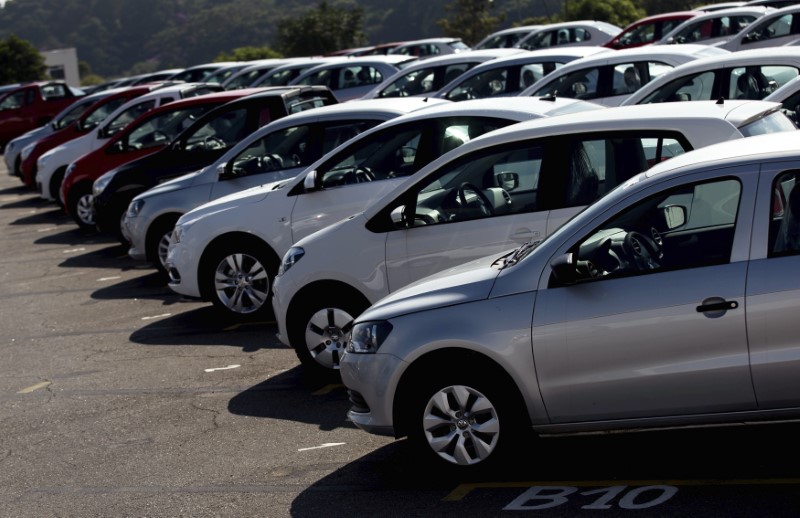By Christiana Sciaudone
Investing.com -- We sell clothes online on consignment, so why not cars? Enter CarLotz, among the newest disruptors in the digital used car world, which has seen demand boom in times of Covid-19.
The fast-growing, already nearly trillion-dollar market for used cars is a fragmented one, with thousands of dealers of all sizes, and the top 100 representing just 6% of the total. Richmond, Virginia-based CarLotz is seeing a wealth of opportunity to fast-forward the industry into the digital age -- though it is also betting on physical locations. It is poised to go public via a reverse merger with a special purpose acquisition company to fund its ambitious growth plans.
CarLotz says it's unique in selling vehicles on consignment online from individuals who might previously have used Craigslist, corporations and auctions.
"We're the only guys who are disrupting the whole supply chain," said Chief Executive Officer Michael Bor in a video interview. Expectations for future performance are high, and CarLotz is not alone in its mission.
The company sees 2020's estimated revenue of $110 million booming to as much as $1.7 billion in 2023, and unit sales jumping from just over 6,000 to over 80,000 in that time period. Annual profit, estimated at $12 million in 2020, could rise to as much as $250 million in 2023, the company said in a statement.
While that may seem aggressive, rival Carvana’s first reported revenue after going public in 2017 totaled $159 million. In its most recent quarterly report, Carvana Co (NYSE:CVNA) reported sales of $1.54 billion.
“It does sound like a big dollar amount but it's consistent with what we're seeing is possible in this sector,” Bor said.
CarLotz's reverse merger with Acamar Partners's Acamar Partners Acquisition Corp Class A (NASDAQ:ACAM), and a private investment in public equity, or PIPE, for a total of $436 million, minus expenses, will put $321 million on its balance sheet. That will help CarLotz expand from eight locations in five states -- it intends to open three to four new locations each quarter for the next several years.
The industry's jump in sales will have to overcome pressure on individual car prices. Rival Vroom (NASDAQ:VRM) saw increased demand in the third quarter, with ecommerce unit sales up 59% and overall unit sales rising 15%. The company reported results earlier this week. Despite the good news, Vroom shares tumbled 13% because the average online selling price of its vehicles tumbled in the third quarter to $24,248 from $31,370.
Carvana, another competitor, also saw demand increase, with retail units sold in the third quarter up 39% from the same period in 2019. But Carvana also saw a dip in the average selling price of retail units in the third quarter, to $20,013 from $20,059.
CarLotz's growth plan assumes a slight increase in the average selling price, from $16,054 to $17,250 between 2020 and 2022, representing a 3.7% compound annual growth rate. That average is 7% lower than the increase recorded between 2017 and 2019, according to CarLotz.
CarLotz nets a better price for its sellers with professional merchandizing, Bor said. In fact, CarLotz’s corporate vehicle sourcing partners earn on average about $1,000 more through CarLotz than by selling at wholesale, according to a company presentation.
The used car market has definite potential and CarLotz could be ready for take off. Looking at its competitors, however, shows these stories have very different endings. Carvana saw shares more than double in 2020. Vroom, however, which went public in June, saw a spike in shares in September, only to tumble more than 50% since then.
Despite a growing market, it's not necessarily an easy one.
